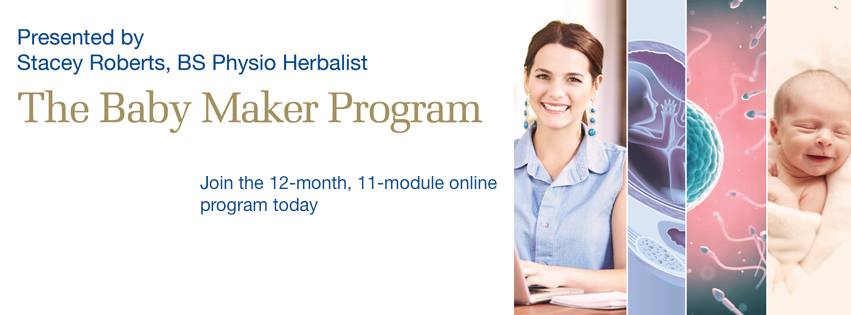From a clinical perspective, there are many areas to assess when supporting a couple who has experienced recurrent miscarriage, including thyroid disorders, autoimmune disease, genetics and more.
Miscarriage, the loss of pregnancy before 20 weeks, is a relatively common event. Up to 1 in 4 women will experience a miscarriage in their lifetime, but the number is likely higher as many are not reported or simply unknown due to women not trying to get pregnant who miscarry after being a few days late.
Recurrent miscarriage, i.e. three or more consecutive pregnancy losses before 20 weeks, on the other hand, is considered rare. Approximately 1-2% of women experience three or more miscarriages. However, when you consider the percentage of women who have two or more consecutive miscarriages before 20 weeks that number jumps to 6%.[1]
The statistics are an interesting aspect to discuss but when you have a woman sitting across from you who has suffered recurrent miscarriages, they really don’t mean a thing. Because to that one woman or couple dealing with recurrent miscarriage it is a situation that causes anguish and suffering, which is often not talked about or dealt with very effectively in our society.
Dana* and her husband Dave* fell into that category. They came to my clinic after having had 9 miscarriages and no viable pregnancies. She and her partner were at their wits end. Dana was agonising when she wasn’t pregnant that maybe it wasn’t going to happen for her and then whenever she became pregnant she experienced crippling fear and anxiety that this pregnancy would end abruptly like every other.
This sensitive emotional state began to effect their marriage and decreased the amount that they were having intercourse which in turn caused more anxiety for Dana and more stress on the relationship. Arriving at my clinic they were skeptical but desperate to try anything that would put a stop to their misery.
What is happening with the person experiencing recurrent miscarriage? Why do they continue to suffer loss after loss?
Many times a full analysis of the patients situation isn’t done until after the third miscarriage and by then many women are more stressed and anxious than they have ever been. Therefore, even when there are two consecutive miscarriages I often recommend further testing to rule out areas that could be an issue.
Working with the patient’s GP is imperative so that together you can create a team working to support the couple. A mental health plan may be considered to give the female emotional support and help her through the process of grieving each pregnancy loss. Because the issue of miscarriage is often not talked about in our society or considered just “one of those things” many can’t relate to the grief that one experiences after several miscarriages so it is important and often helpful to reach out for emotional support.
Further investigation and digging a bit deeper often reveals areas that could be improved upon such as subclinical thyroid issues and others that can be supported by physicians medically if the patient choses.
Areas to consider that contribute to recurrent miscarriage and should be ruled out are thyroid issues, autoimmune disorders, clotting disorders, genetic variations and infections. Here, I will focus on those that are the most overlooked areas but this is certainly not an exhaustive list but are the areas I see most commonly occurring in the clinic setting.
Coeliac disease
There is a greater incidence of miscarriage in women who do not know they have coeliac disease or a gluten intolerance and continue to have gluten in their diet. There is an established relationship between overt celiac disease and adverse reproductive consequences, including infertility. Celiac disease also has been suggested as a contributor to recurrent pregnancy loss.[2]
Less than optimal thyroid hormone output and conversion despite normal TSH and negative antithyroid antibodies
Though not considered a medical issue, patients with recurrent pregnancy loss often present with less than optimal FT4 and poor conversion to the more active thyroid hormone FT3. This can be due to iodine deficiency, less than optimal selenium, zinc and chromium present in diet and or supplementation or adrenal fatigue/adrenal exhaustion.
Elevated antithyroid antibodies with normal TSH
It is the belief of many medical practitioners that if TSH is normal there is no need to test for thyroid autoantibodies. However it has been shown that elevation in thyroid autoantibodies can be correlated with pregnancy loss even if TSH is normal.[3]
In Dana’s case she experienced poor digestion though not coeliac disease per se, though she did feel much better off gluten. Another issue Dana presented with was “normal” thyroid results based on her TSH levels of 4.2, elevated thyroid peroxidase antibodies and a low “normal” FT4 and FT3 output of 11.4 and 3.8 respectively.
By following my Five Step Fertility Solution™:
Optimal Eating Plan
In Dana’s case this involved the removal of gluten, caffeine and refined sugars and increasing good fats in her diet.
Minimising Exposure to Chemicals or Toxins
Dana changed her hair care and skin care products to brands with minimal to no chemical ingredients.
Optimal Supplementation
Dana did well on a high quality antioxidant/multimineral combination including selenium at 150mcg, zinc 30mg and chromium 250mcg, a multi-strain probiotic and a purified high potency omega-3 supplement as well as a herbal mixture to support the thyroid which included bladderwrack (to support iodine intake since we found Dana’s T4 levels to be low), withania (for adaptogen and thyroid T4 support) and rehmannia (adaptogen), along with other herbs that were related to symptoms Dana presented with related to her menstrual cycle.
Exercise
Dana and Dave both began to take walks together after work discussing their day and enjoying this time together.
Stress Management
Dana went to see a grief counsellor and found it helpful to review the past miscarriages that she was trying to push out of her mind. She had not properly grieved the loss of the pregnancies but with counselling she learned healthy grieving techniques and coping strategies for the anxiety that she was experiencing. Through this experience Dana was finally able to share what she was going through with her husband. Dave had no idea the emotional suffering Dana was experiencing by feeling “less than” and not a “proper wife” because she wasn’t able to give him children at that time.
The good news is after five months on the program above, including adjustments based on how her thyroid improved and antibodies decreased over time, Dana and Dave were able to create a viable pregnancy. They went on to have three children in the span of six years.
The holistic approach to recurrent miscarriage is essential to supporting not only patient but the patient’s partner and future family as well. Patients with the diagnosis of recurrent miscarriage can present in many different ways so it is important to remember that each couple must be evaluated and treated based on how they present in the moment as well as their past history and not treated based solely on their diagnosis.
*Names have been changed to protect privacy
References:
- Petrol JC. Recurrent early pregnancy loss. Medscape news and perspective 2014 [Link]
- Ory SJ, Christie DR. Reproductive effects of celiac disease. Contemporary Ob/Gyn 2013 [Link]
- Thangaratinam S, Tan A, Knox E, et al. Association between thyroid autoantibodies and miscarriage and preterm birth: meta-analysis of evidence. BMJ 2011;342:d2616. [Full Text]
Practitioners can join the 12-month, 11-module online Baby Maker Program led by natural fertility expert Stacey ‘The Baby Maker’ Roberts.
DISCLAIMER:
The information provided on FX Medicine is for educational and informational purposes only. The information provided on this site is not, nor is it intended to be, a substitute for professional advice or care. Please seek the advice of a qualified health care professional in the event something you have read here raises questions or concerns regarding your health.



